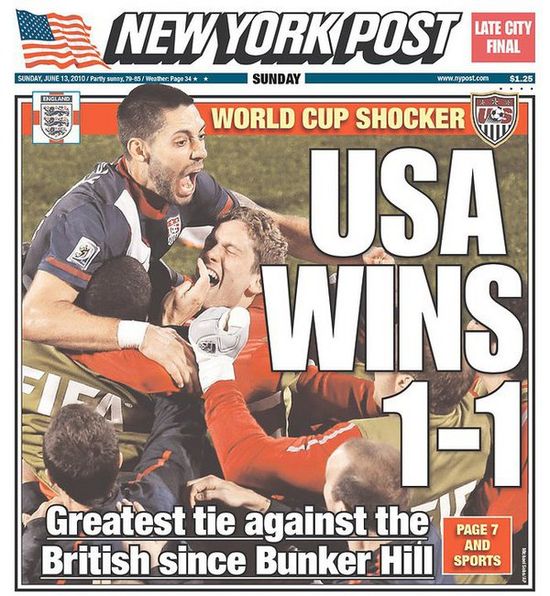Oy vey.
Jorge Luis Borges
httpv://www.youtube.com/watch?v=vo2Eo-G-1sE
Interview with Borges (Spanish with English subtitles)
On this date Borges died (1899 – 1986).
Frye in conversation with David Cayley:
Cayley: I believe some of your literary productions as an undergraduate were satires. You were attracted to this form of [Menippean] satire?
Frye: I was always attracted to that form, because at that time certainly, I knew more about ideas than I did about people. If someone like Borges had been known to me at the time, I would have tried to pick up that kind of tradition, I think. (Northrop Frye in Conversation, 71)
Picture of the Day
The world’s oldest shoe, perfectly preserved, was recently discovered in a cave in Armenia. It’s older than the Great Pyramid at Giza and Stonehenge. You can read about it here.
W. B. Yeats
httpv://www.youtube.com/watch?v=u2FT4_UUa4I
Today is Yeats‘s birthday (1865 – 1939).
Frye in “The Top of the Tower: The Imagery of Yeats”:
In Byzantium the imagery is again Heraclitean and alchemical, the vision of Sailing to Byzantium seen from within as a process. We start out in the sea, the beginning and the end of life, and move from the “fury and mire” of human passion upwards to the “changeless metal.” This is the movement of discarnation, opposite to the birth-to-death movement of incarnation, in which the spiral wrappings of the dead mummy are unwound, a movement that takes us beyond the world that is “by the moon embittered,” and where the gong never ceases to strike. Perhaps, then, the intuition of so many poets, including Dante, that this journey of the soul is also connected with another life after ordinary death has something to be said for it. If man has invented death, as Yeats says, he can recover what he has projected, and find his home in the “translunar Paradise” which he himself can make, and has made.
The poet of the Byzantium poems has gone far beyond the mystery of the fifteenth phase of A Vision, presented there as something forever beyond human capacities. The fifteenth phase is guarded, we are told, by Christ and Buddha. Christ descended into the bottom of the cyclical world–made himself of no account, as Paul says–then rose out of it, with a great company following. Buddha meditated on the deliverance of man from his own Narcissus image, “mirror on mirror mirrored,” the genuine Hercules in heaven liberated from its shadow in Hades. Just as in Eliot’s Burnt Norton the summit of vision and the depth of annihilation are the same point, the still point of the turning world, so in Yeats the top of the tower is both the rag-and-bone shop of the heart and the translunar Paradise that the heart alone has created. (The Stubborn Structure, 276-7)
Saturday Night Video: Exile on Main Street
httpv://www.youtube.com/watch?v=_lNP-x94-SE
The Rolling Stones recently released a remastered version of their 1972 masterpiece, Exile on Main Street.
The Stones have been around so long — and have ground out so much also-ran material over the past 30 years — that it is easy to forget sometimes why they were once seriously known as “the world’s greatest rock ‘n’ roll band.” Exile of Main Street is almost certainly their best work that, more than anything by other mainstream artists of the period, deeply explores the musical roots of rock ‘n’ roll, from gospel to blues to soul to country and honky tonk — not to mention at least one track, “Just Wanna See His Face,” that sounds like it burbled up from the depths of a bayou swamp by way of voodoo magic.
Above is the album’s opening track, “Rocks Off”, played over contemporary footage by photographer Robert Frank, who also designed the album’s distinctive cover, as well as shot the notorious, never-released making-of-Exile documentary, Cocksucker Blues.
Before there were music videos, there was Britain’s Top of the Pops. A couple of appearances by the band after the jump.
Frye Alert
. . . on iWise (Wisdom on Demand).
Globe Theatre
httpv://www.youtube.com/watch?v=8TuR24xhtYg
Trailer for a production of Romeo and Juliet at the restored Globe
On this day in 1997 the reconstruction of Shakespeare’s Globe theatre was opened.
Well, it’s not exactly a secret, but still…
The conception of all the world as a stage & of the playhouses as a microcosm of the world is indicated in the name, motto & architecture of the “Globe” theatre. (CW 20, 106)
The motto of the Globe was “Totus mundus agit histrionem” — the whole world is a playhouse.
TGIF: SCTV
httpv://www.youtube.com/watch?v=bB6KFa7-6B4&feature=related
SCTV remains one of the watersheds of television comedy almost 30 years after they called it quits. They were particularly good at satirizing game shows — sort of paleo-reality television. Above, “Half Wits”. After the jump, “Night School High-Q”.
Video of the Day
httpv://www.youtube.com/watch?v=QaRPV6_w9Nk
BP Deepwater Horizon wellhead today, June 11, day 53
Toronto Star: Estimated rate of spill now doubled
Troy
httpv://www.youtube.com/watch?v=eLs3-zUJc9M
Shakespeare’s Troilus and Cressida, act 2, scenes i and ii
Today is the traditional anniversary of the sack of Troy in 1184 BCE.
Frye on Troy, British national mythology, and Shakespeare in A Natural Perspective:
History is a prominent genre in Shakespeare until Henry V, when it seems to disappear and revive only in the much suspected Henry VIII at the end of the canon. Yet the history of Britain to Shakespeare’s audience began with the Trojan War, the setting of Troilus and Cressida, and included the story of Lear as well as the story of Macbeth. Even Hamlet is dimly linked with the period of Danish ascendancy over England. Alternating with these plays in a Britain older than King John are the Roman or Plutarchan plays, dealing with what, again, to Shakespeare’s audience was the history of a cousin nation, another descendant of Troy. In Cymbeline the theme of reconciliation between the two Trojan nations is central, as though it were intended to conclude the double series started by Troilus and Cressida. (66)

